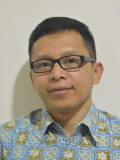Indonesia’s economy has seen rapid growth in recent decades, largely driven by natural resource extraction and land-based commodity production. Coal mining has featured prominently.
This dependence on coal has made Berau’s fiscal conditions fragile, with lower coal prices shocking the economy into a budget deficit in 2015 and 2016. The government acknowledges that its focus on resource extraction is not financially or environmentally sustainable and is beginning to shift its attention from mining to cultivation, with an emphasis on palm oil.
A recent study by Climate Policy Initiative examines whether palm oil’s potential as an economic driver will bear out for Indonesia’s goals, using Berau as an example case. It finds that while sustainable palm oil does present opportunities for regional growth, other checks and measures are needed to ensure that Berau does not fall into the same single-commodity resource trap it experienced with coal mining. These findings are likely to apply to other districts in East Kalimantan and in areas whose economies are highly dependent upon agricultural commodities, especially palm oil.
The following provides a brief overview of the findings.

Shifting from one extractive commodity to a monocrop is risky for the economy and food security
The study finds that with palm oil edging out other estate crops, Berau’s economy lacks diversity and is unsustainable. Dependence on a single commodity exposes Berau to risks from price and demand fluctuations.
In the context of palm oil, this risk is significant. Palm oil is increasingly recognized as one of the main drivers of deforestation and biodiversity loss, and the European Parliament recently called for the use of palm oil in biofuels to be banned from 2030 onward.
Moreover, the edging out of food crops is a troubling sign that Berau is shifting from a food secure region with enough staple food such as rice to self-subsist, to becoming a region increasingly reliant on imports of food crops from other regions for food security.
In order to hedge the risks of dependence on a single commodity, Berau can pursue several pillars of a transition plan.
Optimization of government revenue sources and improvements to budget allocations
The study shows that while palm oil may have direct benefits to Berau’s economy in terms of employment and improving GDRP, these benefits do not translate into government revenue that can be strategically deployed to improve overall sustainable economic growth in the district.
Berau could improve its own-source revenue by increasing the pool of productive activities from which regional taxes could be sourced, including IMB refinery permits, port permits, refining plant permits, and jurisdiction certification services.
Income tax could also be optimized by diversifying agricultural production and down-streaming. The opening of refineries would not only create more jobs and added value for the palm oil sector in Berau, but it would also boost Berau’s government revenue. If all crude palm oil were refined in Berau, it would generate an estimated IDR 405 billion (USD 31 million) in national tax revenue that could be reinvested into infrastructure and services that support sustainable agriculture in Berau.
Prioritizing efficiency over expansion and fostering diversification into value-added products and other crops
Berau can incentivize Sustainable Palm Oil (RSPO) certification for its existing palm oil producers. Globally, products with RSPO certification currently achieve a price premium of 1–4%. Based on the levels of production in Berau, RSPO-certification at the district level could lead to an estimated 7% increase (for a range of IDR 31—158 million/year added value) in added value per year.
Berau can also channel funds from programs like the Village Fund (Badan Usaha Milik Kampung – BUMK) to support village enterprises that can leverage the capital to become more efficient, expand into value-added products (there are approximately 146 types of products that could be produced by the palm oil industry in Berau), diversify into profitable crops like cacao and pepper, and develop downstream industry for palm oil as well as other agricultural products.
Innovative fiscal transfer mechanisms need to be developed
Lastly, inter-governmental fiscal transfer mechanisms could be improved to support district economic health for districts like Berau that are prioritizing sustainability, by making transfers conditional upon the achievement of certain sustainability performance indicators.
For central-to-regional government transfers, the Special Allocation Fund (DAK) and the Regional Incentives Fund (DID) show promise as these funds already incorporate some degree of direct or indirect ecological variables.
For province-to-district fiscal transfers and district-to-village fiscal transfers, new fiscal transfer mechanisms which insert ecological criteria are being developed by civil society and tested in a few regions.
Next steps: Creating a strategy and fostering national-level dialogue
The shock of a single-commodity downfall would be catastrophic in Berau.
This study recommends specific next steps that include creating strategy for agriculture growth in Berau that prioritizes efficiency over expansion from palm oil, as well as diversification into other crops and value-added products.
In addition, policymakers in Berau should encourage national-level dialogue regarding the allocation formulas for central-to-regional fiscal transfer mechanisms (e.g., DAU, DAK, DBH, DID, and the Village Fund) as well as taking small adjustments to other mechanisms to better reward and incentivize sustainable land management, setting the District up for longer-term fiscal and economic health.
***
In following studies, CPI will take a closer look at ecological fiscal transfer mechanisms learning from the TAPE and TAKE initiatives. Follow up studies will delve deeper into what the incentives formula might be for these transfer instruments, and how to deploy them effectively.


